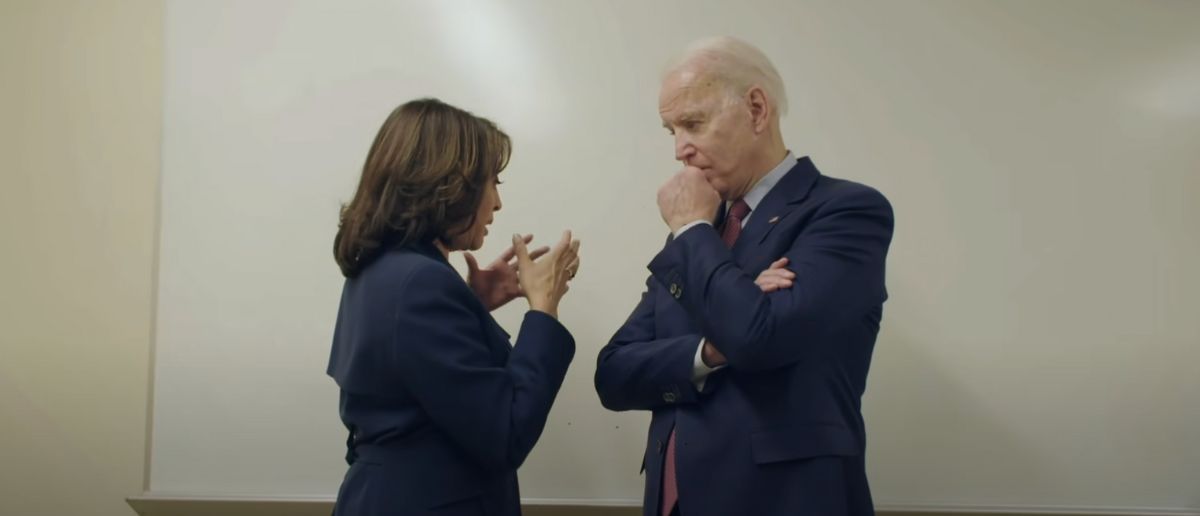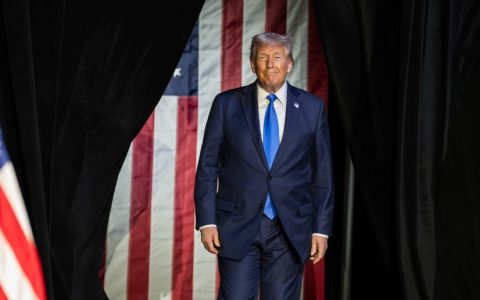
The courts haven’t been soft on the Biden-Harris admin. They’re keeping the Democrats’ feet to the fire.
And a federal judge just hit Harris and Biden with three staggering words in a big new ruling.
A federal judge has struck down a Federal Trade Commission (FTC) rule aimed at banning employers from enforcing noncompete agreements. The decision, handed down on Tuesday by Texas Judge Ada Brown, marks a setback for the Biden administration’s efforts to regulate employment practices that progressives argue are unfair to workers.
Judge Brown ruled that the FTC lacks the authority to impose such sweeping regulations, which included a broad prohibition on noncompete agreements between businesses and their employees. This ruling follows Brown’s earlier decision to temporarily block the FTC’s noncompete ban, which had been challenged by the U.S. Chamber of Commerce, tax firm Ryan LLC, and other business groups.
In her ruling, Brown stated, “The Commission’s lack of evidence as to why they chose to impose such a sweeping prohibition—that prohibits entering or enforcing virtually all non-competes—instead of targeting specific, harmful non-competes, renders the Rule arbitrary and capricious.”
The FTC’s rule was scheduled to take effect next month after being approved in a 3-2 vote by the agency’s commissioners. The vote was split along partisan lines, leading to a lawsuit filed by Ryan LLC shortly afterward.
Responding to the ruling, FTC spokesperson Victoria Graham expressed disappointment, saying, “We are disappointed by Judge Brown’s decision and will keep fighting to stop noncompetes that restrict the economic liberty of hardworking Americans, hamper economic growth, limit innovation, and depress wages.” She also hinted at a potential appeal and noted that the decision does not prevent the FTC from pursuing noncompetes through individual enforcement actions.
When the rule was first announced, the FTC projected that it could lead to the creation of more than 8,000 new businesses annually and spur the development of tens of thousands of new patents each year.
The noncompete ban was a central part of FTC Chair Lina Khan’s aggressive antitrust agenda, which targets large corporations and big tech companies. Khan, one of the Biden administration’s more polarizing appointees, has faced criticism from those who argue she is overstepping the FTC’s authority and interfering in market dynamics unnecessarily.
Chamber of Commerce CEO Suzanne P. Clark celebrated the ruling, stating, “This decision is a significant win in the Chamber’s fight against government micromanagement of business decisions. A sweeping prohibition of noncompete agreements by the FTC was an unlawful extension of power that would have put American workers, businesses, and our economy at a competitive disadvantage.”
Noncompete agreements affect roughly 30 million Americans, or one in five workers, according to FTC findings. Advocates for banning these agreements often point to California’s state-level prohibition as a key factor behind the success of Silicon Valley’s tech industry.
Opponents of the attacks on non-compete contracts say that it’s basic contracting and rightly point out that workers are not obligated to agree to these contracts to work for a company if they don’t want to. They do have the freedom to look elsewhere. For some industries like real estate, it makes sense that a firm wouldn’t want anyone to gain inside secrets and then just jump ship to another firm.
BREAKING: Today, the U.S. District Court for the Northern District of Texas overturned the FTC's ban on noncompete agreements, marking our seventh major legal win against the Administration’s regulatory agenda.
Read the press release: https://t.co/HeDbM2uyu2 pic.twitter.com/6sPqdFtsfc
— U.S. Chamber (@USChamber) August 20, 2024
Biden-Harris FTC Extremely Ineffective So Far
Critics of the Biden administration’s Federal Trade Commission (FTC) argue that it has struggled to deliver on key objectives despite its ambitious agenda, particularly under the leadership of Chair Lina Khan
A significant criticism is that the FTC has struggled to win high-profile antitrust cases. For example, the agency’s efforts to block Meta’s acquisition of Within, a VR fitness app, and Microsoft’s purchase of Activision Blizzard were unsuccessful. These losses have raised questions about whether the agency is overreaching in its attempts to limit corporate consolidation without adequate legal groundwork.
Some critics argue that the FTC’s aggressive stance on blocking mergers and targeting big tech companies has led to resources being stretched too thin. The agency’s push to block many mergers, even in sectors where competition might be more nuanced, is seen as idealistic but lacking in practical results. This has been cited as a reason why some cases fall apart when challenged in court.
These aggressive strategies from the FTC lean heavy into the far-Left’s “progressive agenda”, but so far there’s been little success to point to. All of the big fights they have picked have not gone their way.
Stay tuned to the DC Daily Journal.





